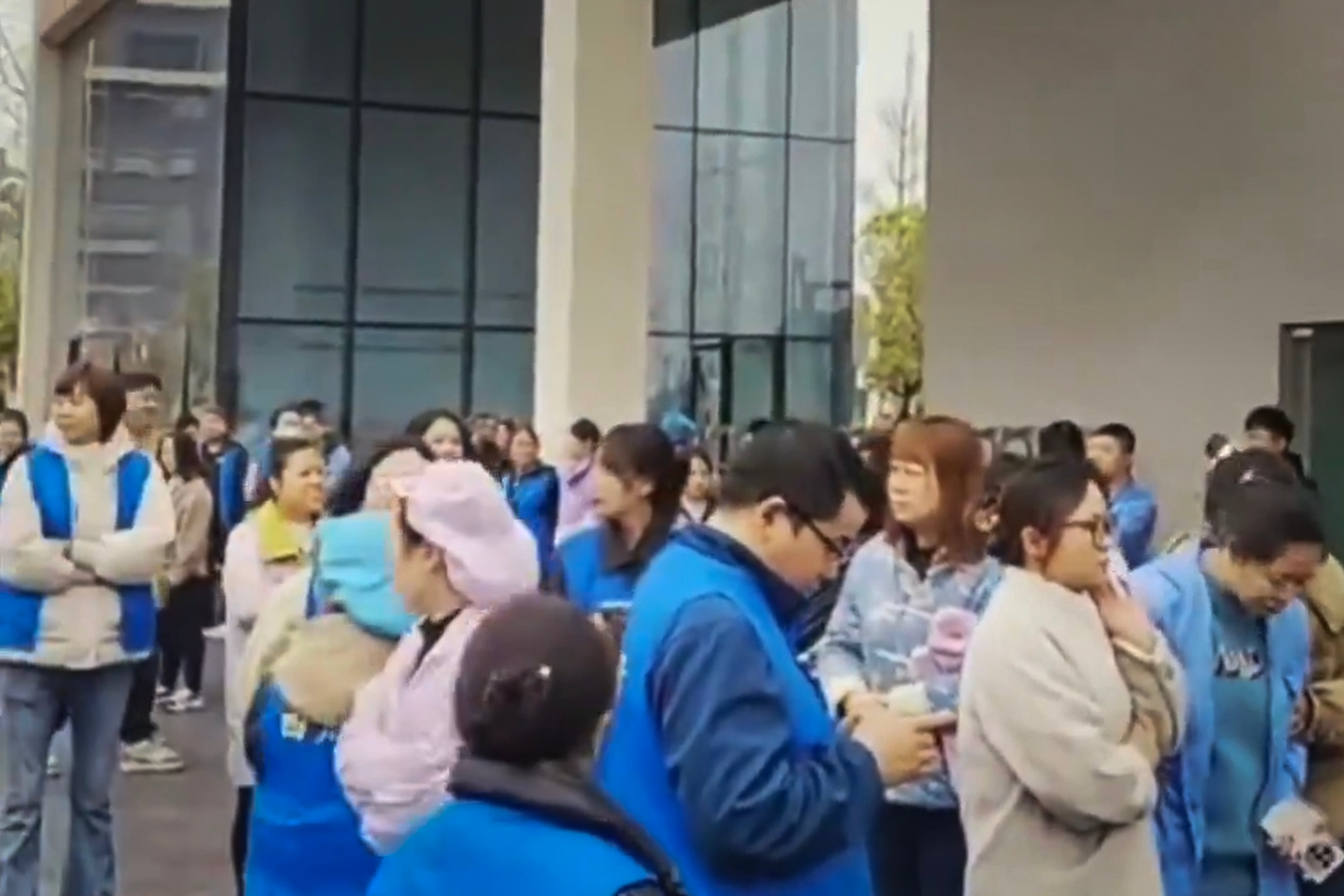Dozens of ordinary Chinese investors who lost their money after the collapse of a state-backed financial services group in eastern China’s Shandong province have been detained by authorities for drawing attention to the issue through foreign media and for “being used by overseas anti-China forces,” two sources told Radio Free Asia.
Last month, several investors among the nearly 100,000 impacted by a purported 20 billion yuan (or US$2.74 billion) financial scam linked to Shandong province-based Jianghaihui Group spoke with international media outlets, including RFA, hoping to create global awareness about the scandal and prompt corrective action.
Sources on Wednesday told RFA that Chinese authorities had detained many of these investors, accusing them of “being used by overseas anti-China forces,” after they gave the interviews to journalists and shared news articles about the scandal in social media groups or privately.
One of the sources said that more than a dozen depositors in several cities in Shandong province, including Weifang and Zaozhuang, have been placed under administrative detention by local police in recent days.
“All the people who had contacted you (RFA) from here were detained,” said the first source named Wang, who is one of the female investors affected.
“They (the police) said we (victims) were being used by international anti-China forces and that we were all committing crimes,” she added.
Wang, like the other sources RFA interviewed, provided only their surname for security reasons.
In late March, RFA reported that the chairman of Jianghaihui had fled China for the United States, along with his wife, after the company abruptly shut down, leaving behind hundreds of thousands of distraught investors who had deposited their savings in financial schemes run by the firm.
Sources told RFA that the investors have been repeatedly summoned by officials of the local public security organ for interrogations and subjected to detention and constant surveillance for sharing information with international journalists.
“The police used the news posted on major (overseas) websites and detained more than a dozen people. There were some people from other provinces and cities too and others who shared (the reports) with each other. The people from the Public Security Bureau showed me (the reports) and said these were anti-China forces,” said Wang.
The majority of those detained are women, with some of them released two weeks ago, while several others continued to be held, said the second source.
“The detainees said that they did not know that the people interviewing them were journalists … The police demanded us not to contact anti-China forces abroad again,” Zhang, another female investor, told RFA.
Investors said they had believed the fundraising schemes run by Jianghaihui were genuine as they were launched as part of government measures to shore up the balance sheets of private enterprises.
They accused the local government of failing to fulfil its supervisory duties. Through appeal letters, protests, and media outreach, the victims have sought justice for themselves in the Jianghaihui case which they say amounts to “contract fraud.”
Illegal fundraising or contract fraud?
In a letter to the Chinese Communist Party’s Central Commission for Discipline Inspection and the Ministry of Public Security, the investors appealed for a thorough investigation, as well as help in recovering their lost funds and safeguarding their rights.
They also questioned why local police had classified the case as “illegal fundraising.”
It should instead be termed as “contract fraud,” noted the investors, as Jianghaihui had held six major financial business licenses, issued by the government, paid taxes, and cleared annual audits every time.
Since 2023, there have been a spate of similar cases as many financial companies, under the pretext of financing small businesses, have raised large sums of money which they have transferred overseas, leaving helpless investors behind, said a third source.
“Many financing companies in various places … used this model to raise funds in a planned manner, and then transferred the funds out (overseas), and then chose a time to flee (China),” said Le, a resident of Linyi, Shandong.
“Some companies transferred assets and then used a scapegoat agent to take the blame. The people can’t get their money back,” she added.
According to a citizen journalist-run social media X account, “Mr. Li is not your teacher,” police in Beijing on April 22 cracked down heavily on protests by hundreds of Chinese investors who were victims of the recent collapse of Zhongrong International Trust.
Before declaring bankruptcy in 2024, Zhongrong was one of China’s largest shadow banks and managed assets worth $108 billion in 2022.
Edited by Tenzin Pema and Mat Pennington.

